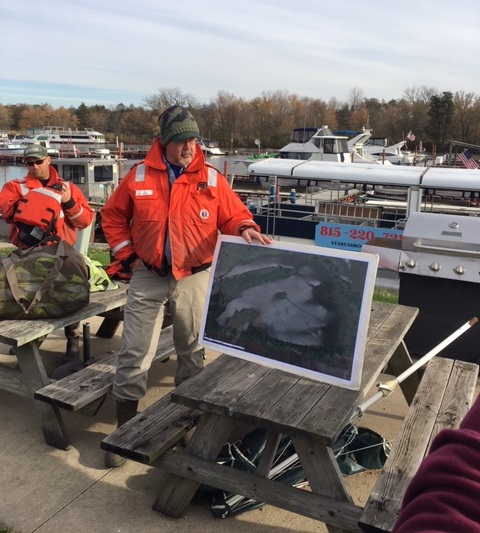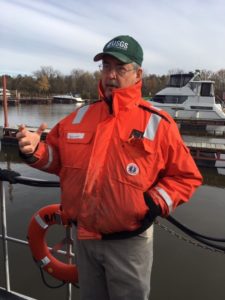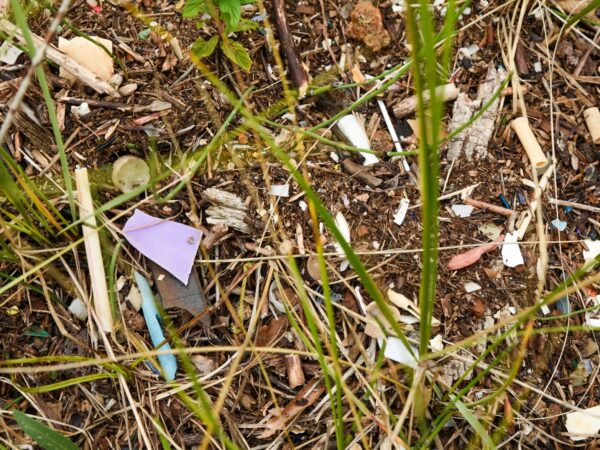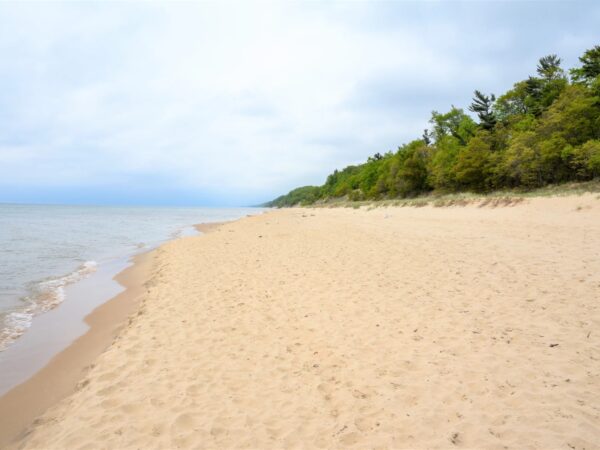
The Asian carp advance toward the Great Lakes first gained wide notice in the early 2000s, and an electrical barrier deterrent was installed in the Chicago area waterways system.
Since then, additional barriers have been added, state and federal agencies have fishing programs to reduce the population and infrastructure modifications to the waterways have been considered as additional deterrents.
This week, Great Lakes Now joined a group of journalists on a two-day trip to the Illinois and Chicago rivers to get the latest in the Asian carp fight. The outing is sponsored by the Institute for Journalism & Natural Resources.
Get used to dealing with Asian carp; they’ll be knocking at the door to the Great Lakes for years, if not decades, to come.
That was the message this week from Asian carp experts to a group of visiting journalists on the Illinois River, a major pathway for the fish to the Great Lakes.

Duane Chapman, Research Fish Biologist with the U.S. Geological Survey, Photo by Gary Wilson
Culling Asian carp from the Chicago waterways system is a never-ending task, according to Duane Chapman, a research fish biologist with the U.S. Geological Survey.
And that’s despite ongoing aggressive commercial fishing operations designed to keep the carp at bay.
It’s not unusual to remove over 200,000 pounds of carp from a waterway and have the area repopulate in a few days, according to Chapman.
Chapman said as a scientist, his job is to provide information on Asian carp that will help inform management decisions to keep them from the Great Lakes.
The carp is sometimes demonized because of its threat to the Great Lakes but, after over 30 years working on carp issues, Chapman has developed a more reflective view of them.
“Asian carp have a beneficial use,” Chapman said. “The problem is when they become too abundant and are in the wrong place,” which is the situation that the Great Lakes face now.
Andrew Reeves has researched the genesis of how and why Asian carp have become the biological nemesis they are today. He traveled with the journalists and was circumspect when asked for a definition of success for stopping the carp advance.
“Victory on Asian carp will be successful management” of their presence, not eradication, Reeves said.
Reeves, who has written for Great Lakes Now, is the author of a critically acclaimed book on carp, “Overrun: Dispatches from the Asian Carp Crisis.”
Watch Great Lakes Now’s segment on Asian carp here:
Read additional Great Lakes Now reporting on Asian carp here:
![]() Looming threat of Asian carp in Great Lakes
Looming threat of Asian carp in Great Lakes
![]() Road Trip: Michigan lawmakers head to Illinois to talk carp prevention
Road Trip: Michigan lawmakers head to Illinois to talk carp prevention
![]() Study: Asian carp could find plenty of food in Lake Michigan
Study: Asian carp could find plenty of food in Lake Michigan
![]() Frozen: Pressure mounts for a new Great Lakes icebreaker, but will Congress pay for it?
Frozen: Pressure mounts for a new Great Lakes icebreaker, but will Congress pay for it?
Featured Image: Duane Chapman, Research Fish Biologist with the U.S. Geological Survey, Photo by Photo by Gary Wilson




